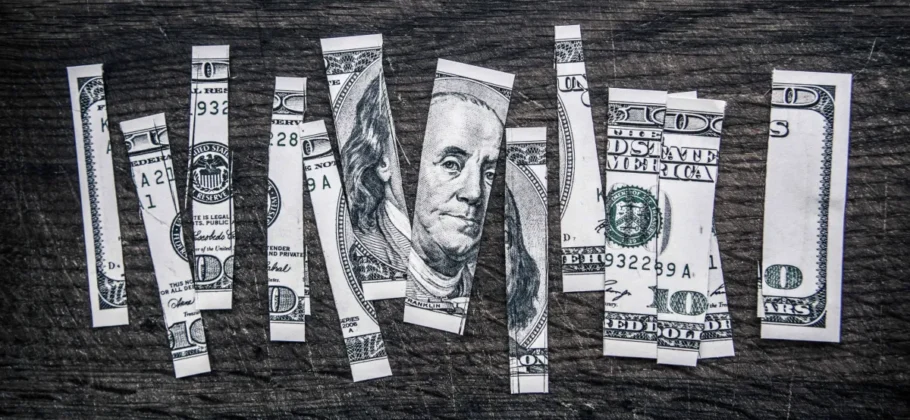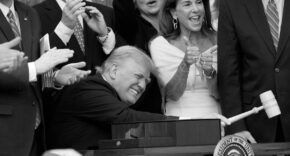On the surface it seems pretty straight forward. Just because someone has more money than someone else doesn’t mean that they should have more monetary influence or other regarding federal elections. But does it really matter? Sixty percent of Americans don’t have an extra $400 in case of an emergency, like car repairs or housing expenses. This segment of the population has deaf ears when it comes to campaign financing. It’s Maslow’s Hierarchy of needs. You’re gonna seek food and shelter before anteing up cash for Joe Biden.
However, the halves with money, the one percenters, who aren’t worried if the 2003 Chevy Impala needs a brake job, are front and center to donate and influence. Hence the rise of campaign finance laws and regulations. So just what is stopping the billionaire businessman from donating a ton to his favorite candidates, while still finding time to sip mint julips at the Kentucky Derby? There’s something called The Federal Election Campaign Act (FECA). It ostensibly limits the amount of money individuals and political organizations can give to a candidate running for federal office. You can donate to more than one candidate in each federal election. The current contribution limits are:
| Primary election | General election |
|---|---|
| $3300 to each candidate | $3300 to each candidate |
A drop in the bucket you say. Well, the cost of running elections, like everything else, has skyrocketed of late for a plethora of reasons, notwithstanding the fact that as soon as an election is over, the media begins salivating and reporting on the next election two years or more away. The only ones who care are the media and the candidates. It wasn’t long ago that no one took notice of a presidential election until after Labor Day of the year of the election. Two months away, not two years.
Going back to the $3,300 limit for a moment, I find it hard to believe that George Soros et al only dig down in their pockets for that kind of chump change to disburse to their candidates. Well yes, of course they get around it. Enter Citizens United v. Federal Election Commission (2010), a landmark US Supreme Court case that upheld unlimited election spending by corporations, dismissing an egalitarian vision of democracy in favor of a libertarian conception of an unregulated marketplace of ideas.
So it isn’t really fair, but what is in life. How about it isn’t actually a level playing field. Thanks to McCutcheon v. Federal Election Commission (2014), the government cannot prevent citizens from giving campaign contributions to as many different candidates and political parties as they want. Enter the Mega-Donor. Now wealthy individuals are contributing millions of dollars to federal candidates and parties. With each enormous check they write, they establish closer ties with the politicians they endorse and overwhelm the efforts of thousands, if not millions, of small donors. According to Ellen Weintraub, a FECA member, “One billionaire has so much more influence than thousands of voters combined. And that’s not the way the system should work.” In fact, data from the Harvard International Review states that only 0.5 percent of Americans made a campaign contribution of $200 or more in the 2018 midterm election. The average American is not financially invested in the politics of the country. The average billionaire is.
It’s not just presidential elections that are influenced by money, but congressional elections as well. According to the Harvard Political Review, the empirical analysis suggest that there is some evidence to support the notion that money may influence electoral outcomes. In 25 of the 35 (71%) U.S. Senate races during the 2020 election cycle, the candidate that outraised and outspent their opponent won the election. If money had absolutely no influence on election results, one could reasonably expect a proportion closer to a 50-50 split.
If you are disheartened as a small donor you should be. The statistics mentioned above bear this out that you have very little say or influence with a small donation. This is not limited to politics, but to almost all non-profits and other recipients of funds. The rule of thumb is that 90% of the donations come from 10% of the people. One has to wonder the raison d’etre of the Federal Election Commission in light of the Citizens United ruling and others. The limits they place on campaign financing are moot in comparison to what the courts have done.
Perhaps the only thing saving the country is that we are split down the middle ideologically at present. One can only hope that this split pertains to the wealthy donor class, such that their funds will offset each other. That is a lot to hope for in the future. Money has always influenced elections despite attempts to contain it, and it probably always will. While technology has made it easier for the small donor to give, it has made it enormously easy for the wealthy to continue to fund candidates at a growing rate. Regardless of whether court cases are overturned or corporations are condemned, wealthy individuals will inevitably have influence, which is why the average American must use a modicum of time, if not money, to listen to what is going on and act accordingly.











